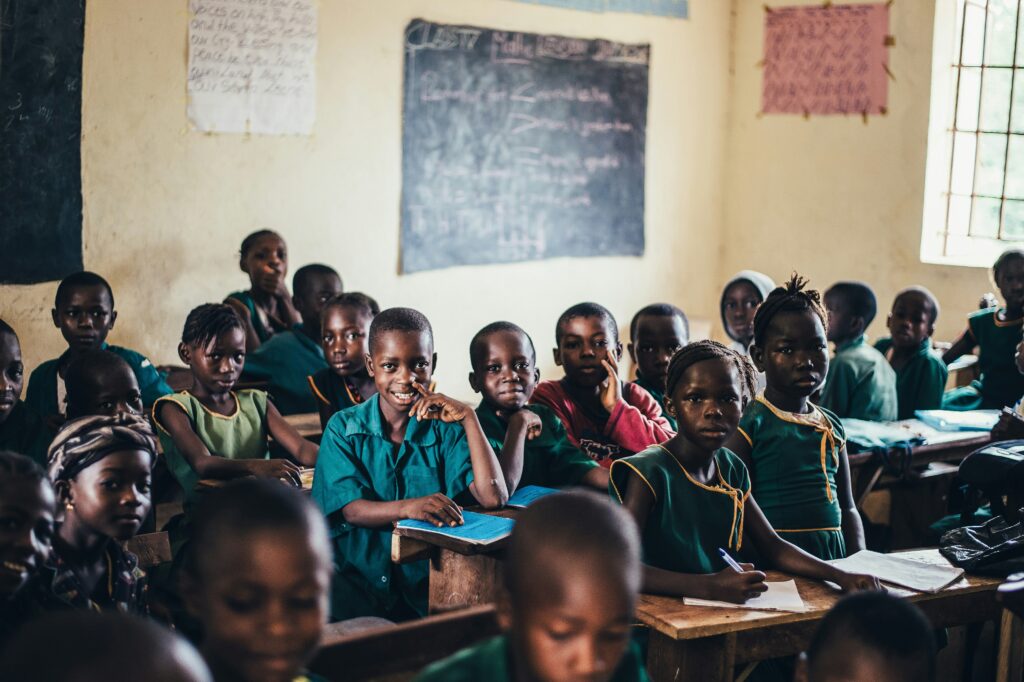Helping Children in Need: How Supporting the Vulnerable Uplifts All of Humanity


When discussing the future, we often talk about progress—technological advancements, economic growth, and social improvements. However, true progress lies in the collective well-being of the most vulnerable members of society:
children in need. Helping children who are disadvantaged, marginalized, or living in dire conditions isn’t just a moral imperative but a key to creating a more just, prosperous, and harmonious world. In this article, we’ll explore why supporting children in need matters to humanity and how it creates positive change across communities.
The Ripple Effect of Helping Children
Supporting children in need doesn’t only change individual lives; it has a far-reaching impact on families, communities, and even nations. When children are given access to the necessities—food, shelter, education, and healthcare—they are more likely to thrive. Thriving children grow into responsible adults who contribute positively to society. These contributions can take many forms, from participating in the workforce to being involved in community services.
A child receiving proper education and healthcare is statistically more likely to stay out of crime, secure a stable job, and contribute to the local economy. Thus, when we help a child, we assist that individual and set in motion a chain of events that can uplift an entire community.
Breaking the Cycle of Poverty
Many children in need are trapped in the vicious cycle of poverty. Born into disadvantaged situations, these children often lack the opportunities and resources to break free. Helping them can be the key to ending generational poverty. Initiatives that focus on education, vocational training, and healthcare can provide the tools and resources necessary for these children to carve out better lives.
Education, in particular, is one of the most powerful tools for breaking this cycle. By helping children receive quality education, we open the doors to opportunities they might never have otherwise. In the long run, educated children become adults who can support themselves and their families, creating a ripple effect that lifts entire communities out of poverty.
Enhancing Global Peace and Stability
A world where children are left to suffer from neglect, poverty, or abuse is one where conflict and instability thrive. Children who grow up in difficult circumstances often face a higher likelihood of developing mental health issues, turning to crime, or becoming involved in conflicts. By intervening early and providing the support these children need, we can help foster a generation that is healthier both mentally and physically.
Moreover, investing in children can help foster global peace. Societies prioritizing child welfare tend to experience lower crime rates, better public health, and more robust social cohesion. Conversely, when children are neglected, societies often face unrest as disenfranchised youths grow up feeling marginalized and ignored. Therefore, supporting the most vulnerable children lays the groundwork for a more peaceful and stable world.
Building More Inclusive Communities
When we help children in need, we contribute to creating more inclusive societies. Children who grow up in adversity are often marginalized or excluded from the social fabric of their communities. Helping them improves their lives and sends a message that everyone, regardless of their background, deserves a chance to thrive.
Inclusion is essential for building strong, cohesive communities. When we invest in children from all walks of life, we encourage empathy, reduce social inequalities, and promote a culture of care. Inclusive communities are also more resilient in times of crisis, as they draw upon the strengths and contributions of all their members.
Supporting the Future Workforce
Helping children in need is also an investment in the future workforce. Today’s children are tomorrow’s innovators, leaders, and decision-makers. We are laying the foundation for a skilled and capable workforce by ensuring they have access to education and healthcare. In an increasingly globalized world, nations that invest in their young people are better positioned to compete on the international stage.
Moreover, helping needy children can reduce the long-term costs associated with poor health and low education. Children who receive proper healthcare and education are less likely to require social assistance or become involved in the criminal justice system as adults. This benefits individuals and eases the burden on public services, allowing governments to allocate resources more efficiently.
How We Can Help
We can contribute to helping children in need in many ways, individually and collectively. Volunteering at local shelters, donating to organizations focused on child welfare, or sponsoring a child’s education are just a few ways to make a tangible impact. On a larger scale, governments and policymakers play a crucial role in enacting policies that protect children’s rights and ensure they have access to essential services.
Organizations like UNICEF, Save the Children, and local non-profits provide vital support, but their efforts are only as strong as the collective will of the people who support them. As global citizens, we must recognize that the well-being of children in need is a charity and a responsibility we all share.
Helping children in need is a cause that transcends borders, cultures, and ideologies. Investing in the well-being of the youngest and most vulnerable members of society builds a better future for all of humanity. These children are not just individuals needing assistance but the architects of tomorrow’s world. We ensure humanity moves forward with compassion, equality, and hope by offering them the support and opportunities they deserve.
